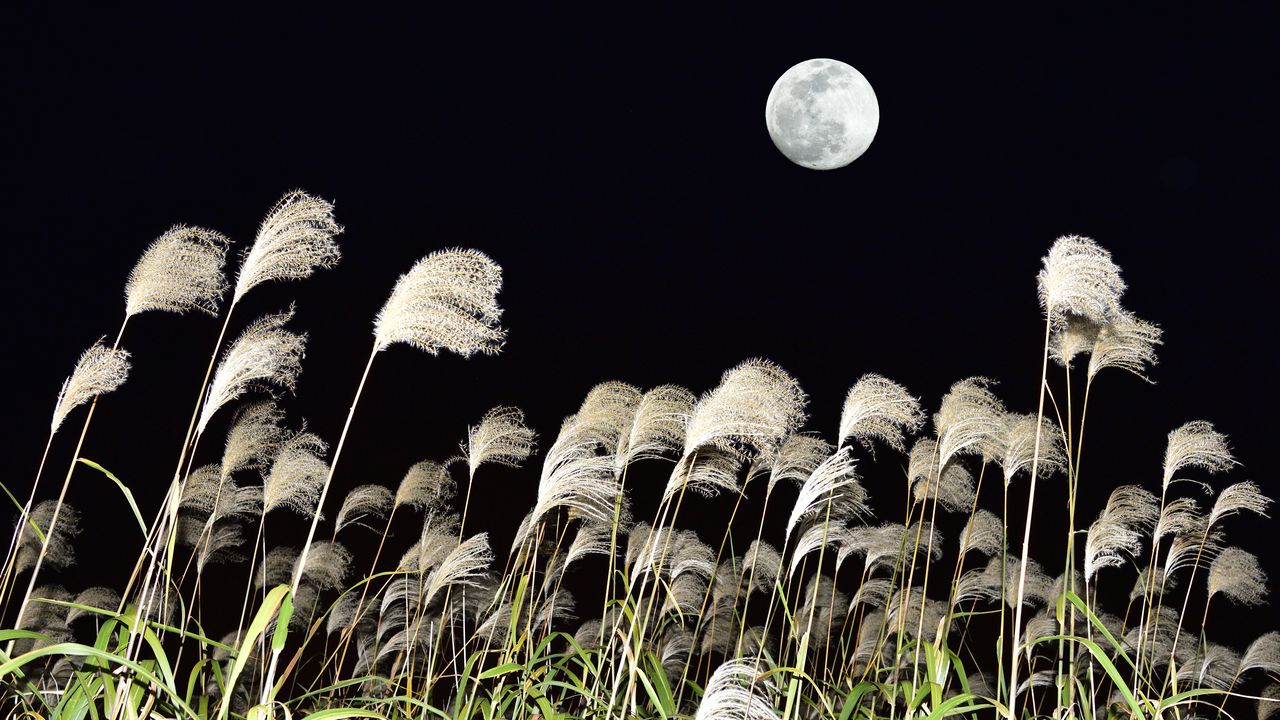
A Journey Through Japanese Haiku
The Moon Shining Everywhere
Culture Environment Lifestyle- English
- 日本語
- 简体字
- 繁體字
- Français
- Español
- العربية
- Русский
鯛は花は見ぬ里も有けふの月 西鶴
Tai wa hana wa / minu sato mo ari / kyō no tsuki
Some villages don’t see
sea bream or cherry blossoms—
but tonight’s mid-autumn moon(Poem by Saikaku, written around 1680.)
In Japanese classic literature, the moon is admired as much as cherry blossoms. At a time without streetlights, the moon shining in the night sky was a familiar presence. Its movement was used to draw up calendars, and there were various names to describe its appearance at different times, such as the mikazuki, a thin crescent on the third night, and the izayoi moon on the sixteenth night, just after it is full. In classical poetry, the “moon” always refers to the celestial body in autumn, and the chūshū no meigetsu or “mid-autumn moon” on the fifteenth day of the eighth month in the lunar calendar (September 29 in 2023) was particularly prized. The tsuki or “moon” in this poem refers specifically to its mid-autumn appearance.
The moon is visible from anywhere. Chinese poet Bai Juyi wrote a poem about thinking of a distant friend when the mid-autumn moon was shining in the sky. The idea that both were viewing it at the same time brought a sense of closeness.
Saikaku’s haiku emphasizes the aspect of the moon that it can be seen from anywhere. While in some villages, people do not have the chance to savor sea bream or appreciate cherry blossoms, everyone can enjoy the autumn full moon. It shines its light on everyone, without regard to status, wealth, or where they live. The comparison of the moon not only with cherry blossoms but also sea bream, an auspicious and tasty fish, is a flourish fitting for haiku.
Saikaku (1642–93) was an Osaka writer remembered best for fiction like Kōshoku ichidai otoko (trans. by Hamada Kenji as The Life of an Amorous Man), but he was also greatly active in the haiku world.
(Originally published in Japanese. Banner photo © Pixta.)